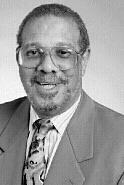“I love these meetings where the public turns out,” said ever-cheery Seattle City Council member Judy Nicastro on the elevator ride up to the 11th floor.
Hey, that’s easy for her to say—the public wasn’t there for her head. Even though everyone knew a proposal to repeal most of the city’s auto impound program was fated to fall by a 5-4 vote, about 70 supporters of the so-called Licata/McIver Amendment gathered in council chambers to hoot, holler, and heckle. They were also there to cheer loudly for the speechifying of council members like Nicastro, who supported the effort to gut the year-old law mandating the impoundment of cars belonging to motorists driving without a valid license.
And a veritable feast of speeches was served, even if too many folks went back for second and third helpings.
The most jarring contrast wasn’t in the arguments, it was in the styles in which they were delivered. The five council members who wanted to retain the law delivered speeches that weruniformly cool—unemotional, detached, and with logic to spare. Their four opponents used words that were hot, their emotions mirroring—and firing up—a crowd determined to be heard, even if they didn’t feel they were being listened to.
A few podium highlights: Council member Richard McIver, the lone African-American legislator, got things started with his pointed comments on a Seattle Times statistical analysis which shows that black drivers are twice as likely to be ticketed as their white counterparts. Some of his colleagues, who act as if they think some clerical error could be to blame, have called on the city to investigate this disproportionality. “You should stop to ask ‘Why?'” echoed McIver incredulously. “If it takes you more than three seconds to answer that, I don’t think you’re facing reality.”
Council member Nick Licata agrees. “I think we all realize that race has a lot to do with who gets stopped, who gets ticketed, and who gets ticketed again and gets their car impounded.”
Nicastro, not so far removed from those tuna fish and Top Ramen grad school days, took a personal approach. “We’ve all been there where maybe you can’t pay a bill,” she said. Of the 7,634 cars seized in the last year and a half, 2,615 have been sold at auction when the owners failed to (or couldn’t afford to) pay the fines and reclaim them. The law, says Nicastro, discriminates against the poor. “It’s about squeezing people down who are trying so hard to make it in this city.”
And, just a little more McIver, this on a proposal to give people a free taxi ride home after their cars are towed away: “When you take my house and give me a voucher for one night in a motel, it just doesn’t work.”
Production values
There’s nowhere to hide on these 5-4 votes, as several council members discovered when demonstrators against the impound law arrived with signs personally taking them to task for their stand on the issue. (The council actually tried to ban protest signs in chambers a few years back, but wisely backed off.)
The rest of the meeting was similarly eventful. One especially vocal protester was almost ejected from chambers (she left voluntarily) by that harried-looking fellow who handles 11th floor security. When those council vocal chords finally gave out and the big vote (the last of a total of eight) was taken, the protesters began to chant “shame, shame.” The council then went into recess and the chanting crowd marched out of chambers, lingering loudly in the hallway for a few minutes before going home.
Act II came a few minutes later when a half-dozen bewildered-looking cops showed up, looked around, and then went home, too. We’ll give the whole production eight stars (out of 10).
Drive West Seattle
Richard Conlin probably faces excommunication from the car-haters club for his tattling, but you had to appreciate his audacity in snitching on two board members of the ber-environmentalist Transportation Choices Coalition.
After separately scolding the council member for his support of the Admiral neighborhood parking garage proposal, both made the same revealing comment: “I went to the Admiral Theater recently, and I had no trouble finding parking.”
Wipe that judgmental smirk off your face, Mr. Conlin. Maybe their bikes were in the repair shop.
Together again
If nothing else, the ill-fated Admiral garage project gave us the chance to see onetime mayoral rivals Paul Schell and Charlie Chong team up to offer support in their own inimitable styles.
Charlie, after reviewing a copy of a Peter Steinbrueck e-mail listing 10 better things the city could buy with the garage’s proposed $3.5 million budget, composed a snippy reply suggesting Peter talk about things public money has already bought—like two sports stadiums, $40 million of the new symphony hall, and a $19 million garage across the street from the proposed City Hall to make sure city employees don’t want for convenient parking during construction. Steinbrueck wrote back saying the city agreed to study the Admiral garage, studied it, and found the project wanting. (He also wrote “Can you see the forest through the trees?” which suggests he may have been overcome by fumes from the council paste pot.)
Paul, on the other hand, waited until after the vote rejecting the Admiral garage (another 5-4 cliffhanger) had been taken and then wrote a stirring letter asking the council to reconsider. Since they had been barraged by phone calls, e-mail messages, and angry state legislators in the weeks leading up to the vote, council members were unamused by this after-the-fact intervention.
(Confidential to Paul: Having people ride in taxis won’t take cars off the street—taxis are cars.)






